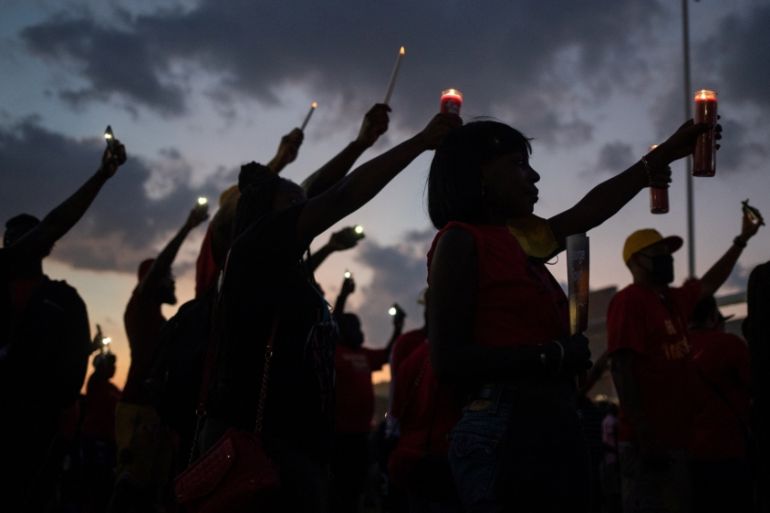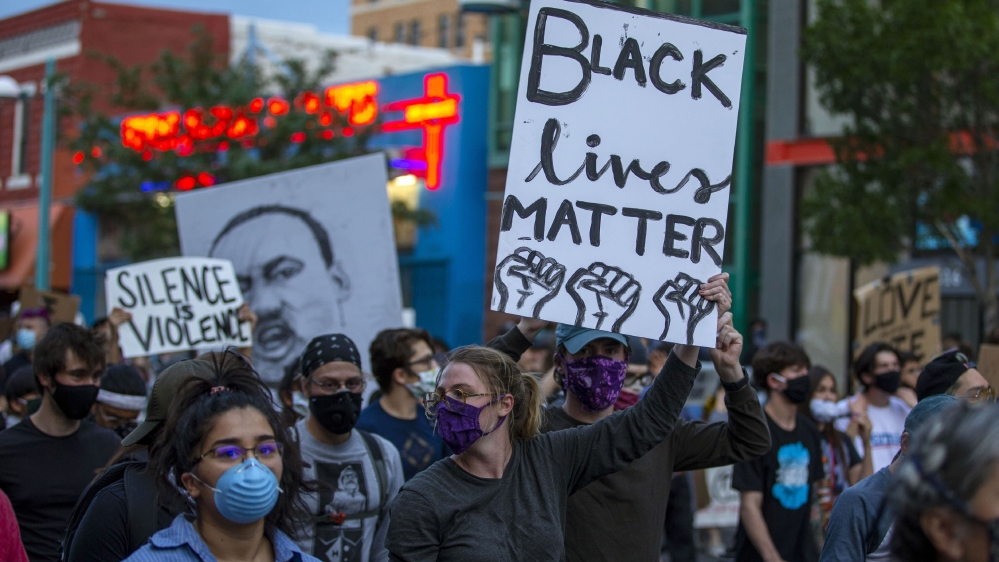Survey: US residents unhappiest they have been in 50 years
The public is less optimistic about the standard of living for the next generation than it has been in 25 years.

A new survey out on Tuesday suggests people in the United States are more unhappy today than they have been in nearly 50 years.
The bold – yet unsurprising – conclusion comes from the COVID Response Tracking Study, conducted by NORC at the University of Chicago. It has found that just 14 percent of American adults say they are very happy, down from 31 percent who said the same in 2018. That year, 23 percent said they often or sometimes felt isolated in recent weeks. Now, 50 percent say that.
Keep reading
list of 3 itemsUN to hold debate on racism, police brutality in US: Live updates
Protests after Black man killed by police in Atlanta
The survey, conducted in late May, draws on nearly half a century of research from the General Social Survey, which has collected data on American attitudes and behaviours at least every other year since 1972. No less than 29 percent of Americans have ever called themselves very happy in the survey.
Most of the new survey’s interviews were completed before George Floyd’s death sparked nationwide protests and a global conversation about race and police brutality, adding to feelings of stress and loneliness Americans were already facing from the coronavirus outbreak – especially for Black Americans.

Among other findings from the new poll:
- The public is less optimistic today about the standard of living improving for the next generation than it has been in the past 25 years. Only 42 percent of Americans believe that when their children reach their age, their standard of living will be better. A solid 57 percent said the same in 2018. Since the question was asked in 1994, the previous low was 45 percent in 1994.
- Compared with surveys conducted after President John F Kennedy’s assassination in 1963 and after the September 11 attacks, Americans are less likely to report some types of emotional and psychological stress reactions following the COVID-19 outbreak. Fewer report smoking more than usual, crying or feeling dazed now than after those two previous tragedies, though more report having lost their temper or wanting to get drunk.
- About twice as many Americans report being lonely today as in 2018, and not surprisingly given the lockdowns that tried to contain the spread of the coronavirus, there has also been a drop in satisfaction with social activities and relationships. Compared with 2018, Americans are also about twice as likely to say they sometimes or often have felt a lack of companionship (45 percent now versus 27 percent in 2018) and felt left out (37 percent now versus 18 percent in 2018) in the past four weeks.
What is surprising, said Louise Hawkley, a senior research scientist with NORC at the University of Chicago, was that loneliness was not even more prevalent.
“It isn’t as high as it could be,” she said. “People have figured out a way to connect with others. It’s not satisfactory, but people are managing to some extent.”
|
|
The new poll found that there have not been significant changes in Americans’ assessment of their families’ finances since 2018 and that Americans’ satisfaction with their families’ ability to get along financially was as high as it has been over nearly 50 years.
The NORC survey of 2,279 adults was conducted between May 21-29 with funding from the National Science Foundation. It uses a sample drawn from NORC’s probability-based AmeriSpeak Panel, which is designed to be representative of the US population. The margin of sampling error for all respondents is plus or minus 2.9 percentage points.